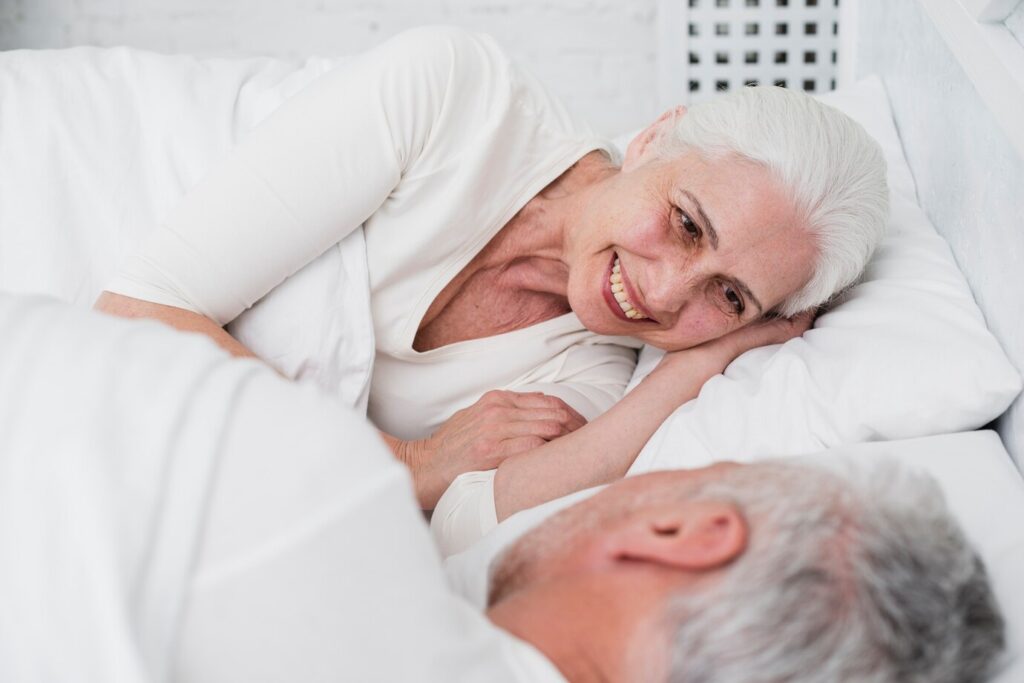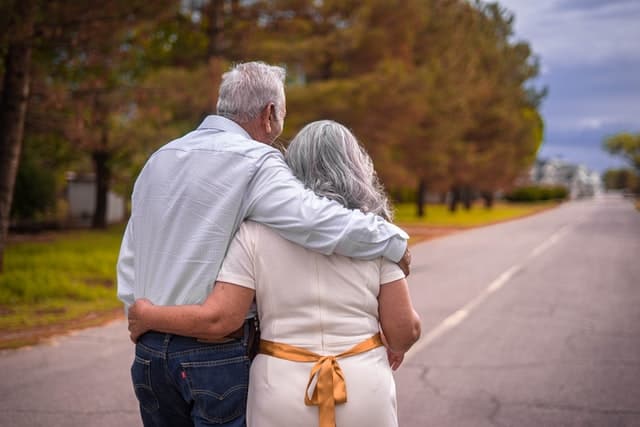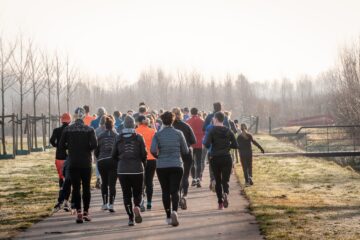Talking about sex in old age or Seniors Night is still a taboo and a reason for shame for many. However, seniors can have an active and healthy sex life, and this is even highly recommended: researchers from the Federal University of Piauí point out that sex has several benefits for the elderly, especially for self-esteem.
The taboos and shame that surround this subject prevent many older people from exploring their sexuality and enjoying the benefits of an active sex life. Today, we’re going to talk a bit more about these taboos and what you can do to overcome the difficulties of sexuality in old age. Let’s go? Read on, and enjoy!
Why it is important to talk about the Seniors Night
Sexuality is the way we experience and express ourselves sexually. It involves feelings, desires, actions, and identity, and can include many different kinds of physical touch or stimulation. Intimacy is a feeling of closeness and connection in a relationship that can occur with or without a physical component. In other words, it is a completely essential and normal element in the life of any adult, whatever their age.
Aging brings life transitions that can create opportunities for older adults to redefine what sexuality and intimacy mean to them. Some older adults struggle with a sexual and intimate relationship, some are content with one without the other, and still others may choose to avoid these types of connections. In all cases, it’s okay. What we cannot do is deprive ourselves of sex life out of fear, taboos, or not knowing what to do. Old age does not have to be asexual.
Tips to have a good Seniors Night
Sex is an important part of emotional and physical health. In a relationship, sexual activity allows you to establish intimacy and express your feelings for your partner. So, the Seniors is also benefits your physical health by reducing stress and making you feel good about yourself and increasing your self-esteem.

As your body and your sexual performance change, you may worry about your partner’s reaction. You may feel embarrassed or nervous. You may even avoid sexual activity. But don’t give up. There are many things you can do to compensate for the changes that aging brings to your sex life.
Some of them are:
- Talk to your doctor: although many adults experience sexual problems as they age, few of them talk to their doctors about their symptoms. Your doctor can help you improve your sexual health by treating medical conditions, including erectile dysfunction (a man’s inability to maintain an erection) or vaginal dryness. In addition, he can find medications that do not affect your sexual activity. Finally, they can suggest ways for you and your partner to enjoy sex in a way that is easier for both of you. Check out our article on what a geriatrician does and when it’s time to see one
- Talk to your partner: At first, it may be uncomfortable to talk openly with your partner about sex. But it’s important to communicate with each other. Tell your partner about your feelings, concerns, and even symptoms. Talk about what you want from your shared sexual experiences. Don’t be embarrassed to say exactly what you want and what you are afraid of.
- Change your routine: If you and your partner are having sexual problems, change your routine. Allow more time for arousal. Try new positions. Be creative. You may find that you don’t have sex as often as you used to, but you can find new ways to have intimacy. Spend some time touching, kissing, and enjoying each other’s company; this can help you progress to the next steps.
- Practice safe sex: contrary to what many may think, seniors are still at risk for sexually transmitted infections (STIs). Ask your partner about their sexual history and share yours. Consider getting tested for STIs together before you become intimate. To prevent disease, always use a condom when having sex.
- Stay healthy: To stay fit and help prevent disease, be sure to exercise, eat well, and see your doctor for regular preventive care. A poor or unbalanced diet can make it even harder to get aroused during sex. Foods rich in protein, for example, are essential for fighting diseases such as osteoporosis.
Most recurrent myths and taboos
As we said at the very beginning of this article, there are several myths and taboos surrounding sexuality in old age. So now we are going to talk about and disprove some of them.
Changes in the body
As we age, our bodies change in many ways, and yes, this can affect our sexual activity and pleasure. But remedies and treatments are available.
The most common sexual difficulty for older women is painful intercourse caused by vaginal dryness. Your doctor or pharmacist may suggest lubricants or vaginal moisturizers to use. Water-based lubricants are useful when needed to make sex more comfortable. Moisturizers are used regularly, every 2 or 3 days. Or, your doctor may suggest a form of vaginal estrogen. If erectile dysfunction (ED) is the problem, it can often be controlled and perhaps even reversed with medication or other treatments. In addition, there are pills that can help.
Also, talk to your doctor if you are experiencing adverse sexual side effects from medications that treat depression, high blood pressure, and other illnesses.
Does sex cause heart attacks?
Sex is a rare trigger for heart attack or sudden death – even less so than sweeping the floor, for example.
Medical experts estimate that the risk of heart attack for a 50-year-old man who exercises regularly is 1 chance in a million per hour. Tripling that risk by engaging in sexual activity increases to 3 in a million per hour, and only for the two-hour period during and after sexual activity. For a heart attack survivor who is getting back into shape, the absolute risk of 10 in a million per hour increases to 30 in a million per hour.
You should refrain from any heavy physical exertion, including sex, until you see a doctor if you have symptoms of heart disease, such as:
- Chest pain
- Shortness of breath
- Cardiac arrhythmia
- Nausea or indigestion
- Sex is not important when you get older
Sexual health and intimacy are important, no matter how old you are.
Sexuality in old age/Seniors Night may present its challenges, but it can still be rewarding and enjoyable.
To maintain a satisfying sex life, talk to your partner. Set aside time to be sensual and sexual together. When you are spending intimate time with your partner, share your thoughts about making love. Help your partner understand what you want from him or her. Be honest about what you are experiencing physically and emotionally.
Also, talk to your doctor or therapist if you and your partner need help.
Sexually Transmitted Infections
Age does not protect you from sexually transmitted diseases. In fact, infection rates of STIs-chlamydia, gonorrhea, and syphilis-are increasing among older adults.
Thus, the ability to maintain sexual function longer with pharmaceutical assistance, changes in immunity and weakening of mucosal tissue, and accessibility in community life are just a few factors that contribute to a possible increase in the occurrence of STIs in the elderly.
Finally, we hope you have enjoyed understanding more about sexuality in the elderly. If you want to continue learning about healthy lifestyles and have access to the best content for seniors, keep following us here!










